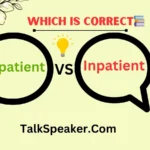Effective communication relies on clarity, especially when expressing gratitude. One phrase that often pops up in everyday interactions is “Thanks for letting me know.”
But is this expression correct and appropriate in all situations? Let’s delve into the usage, grammatical structure, and nuances of this common phrase, and explore alternative ways to express gratitude.
Understanding the Phrase “Thanks for Letting Me Know”
“Thanks for letting me know” is a widely used phrase in English, employed to express appreciation when someone provides useful information or updates.
It’s a simple way to acknowledge that you have received and understood the information shared.
What Does the Phrase Convey?
The phrase conveys gratitude for someone’s effort in informing you about something. Whether it’s a minor update or a significant piece of news, saying “Thanks for letting me know” shows that you value the information and the effort taken to communicate it. For example:
- In a Text Message: “Thanks for letting me know about the meeting change.”
- In an Email: “Thank you for letting me know the project deadline.”
Grammatical Structure of the Phrase
To understand why “Thanks for letting me know” works well, let’s break down its grammatical structure:
- Subject: “Thanks” – This acts as a shorthand for “Thank you.”
- Verb: “for letting” – Here, “letting” functions as a gerund, which is the noun form of a verb.
- Object: “me know” – The phrase “me know” indicates the recipient of the information.
Example Breakdown
In the sentence “Thanks for letting me know about the error,”
- “Thanks” is the subject.
- “For letting” is the verb phrase.
- “Me know about the error” is the object.
This structure is grammatically correct and helps convey appreciation succinctly.
Minor Sentences and Their Usage in English
The phrase “Thanks for letting me know” is an example of a minor sentence. Minor sentences are incomplete sentences often used in informal contexts. They may lack a subject or verb but are still understood due to context.
Role of Minor Sentences
Minor sentences like “Thanks for letting me know” are common in everyday speech because they are direct and to the point. They simplify communication without losing meaning.
Other Examples of Minor Sentences:
- “Good to see you!”
- “Sorry for the delay.”
- “Please, no worries.”
Appropriate Contexts for “Thanks for Letting Me Know”
This phrase is versatile and suitable for various contexts. Here’s a breakdown of where and when it can be used effectively:
- In Emails: To acknowledge receipt of information or updates. Example: “Thanks for letting me know about the schedule change.”
- In Text Messages: To show appreciation for a quick update. Example: “Thanks for letting me know about the new address.”
- In Face-to-Face Conversations: To verbally express gratitude. Example: “Thanks for letting me know about the event.”
Formal vs Informal Use of “Thanks for Letting Me Know”
Understanding the context helps determine whether to use “Thanks for letting me know” or a more formal alternative.
Formal Contexts
In formal settings, such as professional emails or official correspondence, a more polished expression might be appropriate. For instance:
- Formal: “I appreciate you informing me about the changes.”
- Informal: “Thanks for letting me know.”
Table: Formal vs Informal Expressions
| Context | Informal Expression | Formal Expression |
| Personal Conversation | “Thanks for letting me know.” | “Thank you for the information.” |
| Work Email | “Thanks for the update.” | “I appreciate the update.” |
| Customer Service | “Thanks for your help!” | “Thank you for your assistance.” |
When to Use a More Formal Tone of Gratitude
In certain situations, opting for a more formal tone can enhance professionalism and respect. Use a formal tone when:
- Communicating with Senior Executives: Use phrases like “Thank you for your prompt response.”
- In Business Correspondence: Opt for expressions like “I am grateful for your input.”
Understanding the Nuances of Informality
Informal expressions like “Thanks for letting me know” are often used in casual conversations and can vary widely in tone and style. Understanding these nuances can help you choose the appropriate level of formality based on your relationship with the recipient and the context of the communication.
Cultural and Regional Variations
Different cultures and regions have unique ways of expressing gratitude. For example:
- In the UK: Phrases like “Cheers for that” are common.
- In the US: “Thanks a lot” or “I appreciate it” might be used more frequently.
Cultural Comparison Table
| Region | Common Phrases |
| United States | “Thanks for letting me know.” |
| United Kingdom | “Cheers for that.” |
| Australia | “Thanks for the heads-up.” |
| Canada | “Thanks for the info.” |
Alternative Expressions to “Thanks for Letting Me Know”
If you’re looking to vary your expressions of gratitude, consider these alternatives:
- “I appreciate the update.”
- “Thank you for the information.”
- “Thanks for the heads-up.”
- “I’m grateful for your input.”
Comparison of Alternatives
| Phrase | Usage |
| “I appreciate the update.” | Suitable for both formal and informal contexts. |
| “Thank you for the information.” | More formal, ideal for professional settings. |
| “Thanks for the heads-up.” | Informal, often used in casual conversations. |
| “I’m grateful for your input.” | Formal, expresses deeper gratitude. |
Common Misconceptions and Mistakes to Avoid
Misconceptions
- “Thanks for letting me know” is always too casual: It’s appropriate in many contexts, especially informal ones.
- “Thanks for letting me know” is incorrect grammatically: The phrase is grammatically correct and widely accepted.
Mistakes to Avoid
- Overuse in Formal Settings: Avoid using it in very formal or professional communications where a more polished expression is required.
- Misplacing the Phrase: Ensure the phrase fits the context and conveys the right level of gratitude.
Conclusion
“Thanks for letting me know” is a versatile phrase that effectively communicates gratitude in many situations. By understanding its usage, grammatical structure, and appropriate contexts, you can use it confidently and appropriately. Remember, the key to effective communication is choosing expressions that match the formality of the context and the nature of your relationship with the recipient. Explore alternative expressions when needed, and always be mindful of cultural and regional variations to ensure your gratitude is well received.
This post covers the essential aspects of the phrase “Thanks for letting me know,” ensuring you understand when and how to use it correctly and offering alternatives for different contexts.
4o mini

Amelia Harris, a passionate educator, simplifies English grammar and vocabulary for learners of all levels. With her engaging style, mastering English has never been easie




